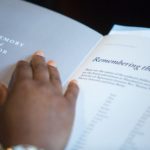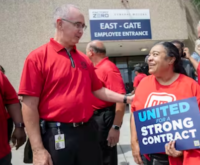Financial Security at Its Second Highest Level since 2010
NEW YORK, May 18, 2015 — Four in 10 Americans spent savings from lower gasoline prices on necessities such as groceries or rent, according to a new Bankrate.com report. Necessities were the leading answer among all age, education and income groups.
“In a testament to tight household budgets, more Americans spent the savings from lower gasoline prices on necessities than anything else,” said Greg McBride, CFA, Bankrate.com’s chief financial analyst. “The percentage of Americans earmarking this money for everyday necessities outpaced those using it for discretionary purchases by nearly 3-to-1.”
Less than 1-in-4 (23%) Americans saved or invested the extra savings (19% saved and 4% invested). Millennials were more likely to have saved (26%) or invested (6%) the money than any other age group.
Just 1-in-7 (14%) spent it on discretionary items, such as dining out or a vacation. Millennials (17%) were most likely to have spent on non-essential items while senior citizens were the least likely (7%).
“When just 14 percent of Americans ramp up spending as a result of gasoline savings, you see why the economy is growing at such an anemic pace,” said McBride.
Americans gave high marks to their financial security in May, with the Financial Security Index rocketing back to the second highest level on record, 104.6. This trails only the 104.8 clocked in February 2015.
Improvement over the past year has been noted on four of the five components, with the only laggard continuing to be savings. Twenty-seven percent of Americans feel less comfortable with their savings while 22% feel more comfortable. Compared to one month ago, responses improved on all five components in May.
Worries about job security are tied for the lowest percentage on record – only 11% of Americans feel less secure in their jobs than one year ago.
Americans reporting higher net worth than one year ago outnumber those reporting lower net worth by more than 2-to-1 (29% to 14%).
Just 16% of Americans say their overall financial situation has deteriorated over the past year, a level that is just half of what was seen when the poll commenced in December 2010. This is also down drastically from the peak of 35% recorded in August 2011.
The survey was conducted by Princeton Survey Research Associates International (PSRAI) and can be seen in its entirety here:
www.bankrate.com/finance/consumer-index/financial-security-charts-0515.aspx
PSRAI obtained telephone interviews with a nationally representative sample of 1,000 adults living in the continental United States. Interviews were conducted by landline (500) and cell phone (500, including 285 without a landline phone) in English and Spanish by Princeton Data Source from April 30-May 3, 2015. Statistical results are weighted to correct known demographic discrepancies. The margin of sampling error for the complete set of weighted data is plus or minus 3.6 percentage points.
Bankrate is a leading publisher, aggregator, and distributor of personal finance content on the Internet. Bankrate provides consumers with proprietary, fully researched, comprehensive, independent and objective personal finance editorial content across multiple vertical categories including mortgages, deposits, insurance, credit cards, and other categories, such as retirement, automobile loans, and taxes.
/PRNewswire/









